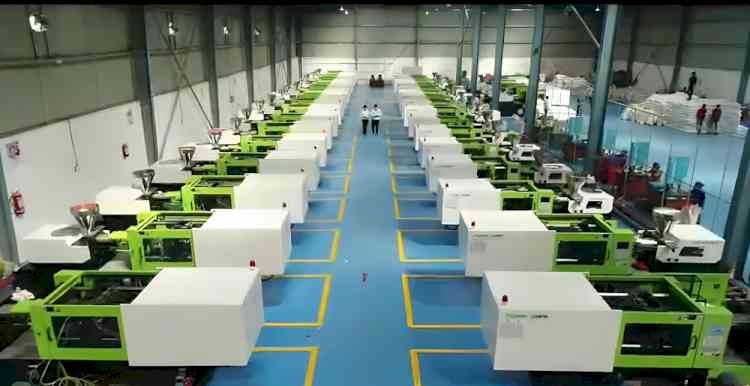Getting back to work after delivery -Breastfeeding while working
By Dr Gayathri Kamath, Consultant Obstetrics & Gynaecologist, Fortis Hospital, Bannerghatta Road Mothers, who are homemakers have the benefit of exclusively breastfeeding their infant for 0-6 months. However, this benefit is limited for working...

By Dr Gayathri Kamath, Consultant Obstetrics & Gynaecologist, Fortis Hospital, Bannerghatta Road
Mothers, who are homemakers have the benefit of exclusively breastfeeding their infant for 0-6 months. However, this benefit is limited for working mothers as they have to resume work. If the maternity leave is planned smartly, things can go smooth and these mothers will be able to manage nursing and working.
Following are few of the guidelines for working mothers to continue breastfeeding even after work.
During your maternity leave
? Take at least 6 weeks to 12 weeks of leave, as it will help you recover from childbirth and settle into a good breastfeeding routine.
? Practice expressing your milk by hand or with a quality breast pump. Store upto 60 to 120 ml at a time to save for your baby after you return to work.
? Help your baby to adjust in taking breast milk from a cup for infants 3 to 4 months before you return to work.
? See if there is a childcare option close to work. Ask if the facility will use your pumped breast milk.
Managing it at workplace
? Keep talking with your mentors about what is or isn’t working for you. Returning to work gradually gives you more time to adjust.
? If your childcare is close by, find out if you can visit to breastfeed over lunch.
? When you arrive to pick up your baby from childcare, take time to breastfeed first. This will give you both time to reconnect before travelling home and returning to other family responsibilities.
? If you are having a hard time getting support, talk to your human resources department. You can also ask a lactation consultant for tips.
Get a quality breast pump
If you're breastfeeding and going back to work or looking for more flexibility, you're probably considering using a breast pump. A good quality electric breast pump can help you to remove milk during the workday. Contact a lactation consultant or your local hospital to learn where to buy or rent a good pump.
Find a private place to express milk
If your company does not provide a private lactation room, find another private place you can use. The room should be private and secure from intruders when in use. Do not express milk in a restroom, as they are unsanitary. It is recommended that you should go for a BPA(Bisphenol A)free container, make sure the container is clean and has capped glass with hard plastic. Before expressing the milk into the container, make sure that your hands are clean, always wash your hands with soap and water before expressing the milk
When to express milk
At work, you will need to express and store milk during the times you would normally feed. This will be about 2 to 3 times during a typical 8-hour work period. Expressing milk can take about 10 to 15 minutes or longer. The number of times you need to express milk at work should be equal to the number of feedings your baby will need while you are away. As the baby gets older, the number of feeding times may go down.
Storing your milk
Breast milk is food, so it is safe to keep it in an employee refrigerator or a cooler with ice packs. Be sure to label the milk container with your name and the date on which you expressed milk.
Make use of breast pump to express the milk and store the container in the freezer. You can make use of waterproof labels and ink to label the containers with the date you have expressed the breast milk. This can help your family members/ caretaker in identifying the suitable container when you are away from home.
You can unfreezethe milk 30 minutes before feeding it to the baby. Make sure the milk is at the room temperature. You can also gently warm the milk by placing it under warm running water or in a bowl of warm water.
Going back to work post-delivery is a hard decision especially when the baby needs exceptional care. Emotional and physical support from family is crucial to help new mothers have a stress free life. There will be some adjustment during the first few weeks when you have returned to work, but eventually mothers will get comfortable. There’s nothing more joyous than taking care of your baby.

 cityairnews
cityairnews 
















